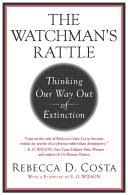We Are Against Everything, but For Nothing
People who publicly protest are not only passionate and well meaning; they are also generally well informed. I found it incongruous that these same people advocated no real solutions. They appeared passionate about what they were against, but when it came time to propose an alternative course of action, they seemed befuddled.
It occurred to me I was witnessing some new form of gridlock: If we are against the war and also simultaneously against every withdrawa plan, how do we move forward? This, by definition, is an impasse.
I began wondering if this phenomenon might also be true foi other complex issues. Was there some supermeme—some universal belief, value, or behavior—that was preventing us from embracing real solutions?
For years I scanned op-ed pieces, news programs, and talk shows ooking for a pattern. In each venue the host, anchorperson, writer, caller, and audience members seemed adamant about what they were against, but very few people, if any, advocated a solution. In fact, every person in favor of a concrete plan was followed by twenty-five vigorously attacking it. The ratio of critics to advocates was overwhelmingly skewed. The more I listened, the more I noticed how easy it had become for people to talk about what was wrong, inaccurate, incorrect. unjust, unattractive, and impractical.
It seems we are against a lot of things.
For instance, most of us agree something should be done about carbon emissions. But we are also vehemently against paying higher prices for gas or being forced to purchase smaller cars. And almost everyone opposes higher taxes, yet we also expect free health care, good roads, and social security as well as unlimited police and fire protection. We are against big business bailouts, but we don't want the government to allow these companies to go under or cut more jobs. We are against handing out mortgages to people with no assets, bfcut we also want home sales to keep rising and real estate to appreciate.2. Corporations demand a bigger share of the global market, but theysy don't want to lower prices or sacrifice short-term profits to get it. Retirees want bigger returns from their investment portfolios, but they y don't want to assume any risk or pay taxes on their gains.
The list of what we don't want, what we don't agree with, and d what we don't like goes on and on, easily dwarfing what it is we desire.
[...]
When a society becomes oppositional, it becomes extremely easy to manipulate. Individuals who understand how opposition works become masters at swaying public opinion and negotiating favorable outcomes. In this way an oppositional culture can become vulnerable to singular ways of thinking and behaving.
[...]
The reason negative advertising works so well is this: A candidate need not win our support when all he/she has to do is simply turn us against the only other choice. We may feel like we're exercising free choice, but what we are really doing is opposing one candidate and. by default, throwing our support behind the only other alternative.
Notes:
For every proposal, it seems like there are twenty objections. Is this human nature? It does make us easy to manipulate.
Folksonomies: debate solutions disputation
Keywords:
real solutions (0.997182 (negative:-0.127245)), supermeme—some universal belief (0.965034 (neutral:0.000000)), big business bailouts (0.944274 (negative:-0.720829)), free health care (0.942732 (positive:0.586782)), negotiating favorable outcomes (0.931140 (positive:0.437560)), human nature (0.835638 (positive:0.474744)), true foi (0.815814 (negative:-0.293606)), op-ed pieces (0.809955 (negative:-0.283364)), new form (0.806153 (negative:-0.498530)), oppositional culture (0.805585 (negative:-0.587484)), alternative course (0.805099 (neutral:0.000000)), complex issues (0.803109 (negative:-0.293606)), withdrawa plan (0.801059 (negative:-0.388274)), news programs (0.800707 (neutral:0.000000)), bigger share (0.798308 (neutral:0.000000)), talk shows (0.796168 (neutral:0.000000)), audience members (0.794311 (neutral:0.000000)), bigger returns (0.793874 (negative:-0.283780)), people (0.793316 (negative:-0.533083)), concrete plan (0.793054 (neutral:0.000000)), carbon emissions (0.791397 (positive:0.440986)), singular ways (0.790376 (negative:-0.587484)), higher taxes (0.789800 (neutral:0.000000)), social security (0.789288 (positive:0.589015)), unlimited police (0.789110 (positive:0.589015)), smaller cars (0.787916 (negative:-0.611930)), home sales (0.786124 (negative:-0.466174)), global market (0.784850 (neutral:0.000000)), good roads (0.784719 (positive:0.516585)), short-term profits (0.783499 (negative:-0.489543))
Concepts:
Need (0.910470): dbpedia | freebase
Want (0.900061): dbpedia | freebase
WANT (0.818800): geo | website





